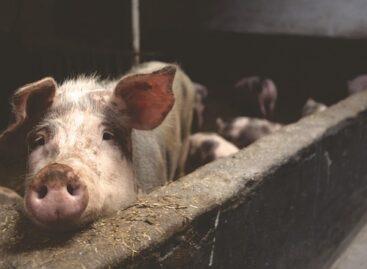FAO: World food prices dip in August
Global food prices declined in August, driven by sharp falls in the prices of staple cereals and sugar, according to a report issued today by the Food and Agriculture Organization of the United Nations.

The FAO Food Price Index, which tracks monthly changes in the international prices of commonly traded food commodities, averaged 169.8 points in August 2019, down 1.1 percent from July while still up 1.1 percent from its August 2018 level.
The FAO Cereal Price Index declined by 6.4 percent from the previous month. Maize values turned sharply lower due to expectations of a much larger than previously anticipated harvest in the United States of America, the world’s largest maize producer and exporter. Wheat prices also remained under downward pressure, reflecting ample export availabilities, but those of rice edged up, due to seasonal effects as well as concerns over the impact of weather on crops in Thailand.
The FAO Sugar Price Index was down 4.0 percent from July, due largely to the weakening of the Brazilian real, as well as prospects of larger shipments by India and Mexico.
By contrast, the FAO Vegetable Oil Index rose by 5.9 percent in August, hitting an 11-month high amid a rebound in global import demand for palm oil as well as unfavorable weather conditions in Indonesia’s major growing regions. Soy oil prices also rose, driven in part by lower than anticipated crush volumes in North America.
The August FAO Meat Price Index rose by 0.5 percent, now up 12.3 percent from its value at the beginning of the year. The increase reflected higher international price quotations for pigmeat, underpinned by strong import demand from China, where the African Swine Fewer has curtailed domestic production.
The FAO Dairy Price Index rose by 0.5 percent from its July level, reversing sharp falls registered in the previous two months, as price quotations rose for cheese, Skim Milk Powder and Whole Milk Powder.
New forecasts for global cereal production
FAO also released a new Cereal Supply and Demand Brief, raising its July forecast for global cereal output by 22 million tonnes to 2 708 million tonnes, 2.1 percent above the 2018 outturn.
The revisions mostly reflect improved expectations for U.S. maize production. Meanwhile, FAO lowered its estimate for global wheat output in 2019 due to reduced crop productivity in the European Union and the Russian Federation, but it is still expected to be 5.0 percent higher than in 2018. The forecast for worldwide rice production has been revised up from July to 517 million tonnes, at par with last year’s record level, driven by increases in China and the United States.
World cereal utilization for the year ahead is expected to hit a new record of 2 715 million tonnes, buoyed by rice consumption hitting an all-time high of 519 million tonnes, translating into a 0.5 kilogram per capita increase from the previous year. Utilization forecasts for wheat, maize and barley were also raised.
The stronger harvest prospects point to world cereal stocks reaching 847 million tonnes by the close of seasons in 2020, which, however, would remain around 16 million tonnes below their opening levels. Maize inventories are expected to accumulate sharply in the United States, while China’s wheat stocks are currently set to expand by 7.9 percent and reach an all-time high.
FAO left unchanged its forecast for world trade in cereals at nearly 415 million tonnes, as expected increases in wheat and rice trade offset reduced trade prospects for maize and sorghum.
Related news
The producer price of domestic slaughter pigs decreased by more than a quarter in one year
🎧 Hallgasd a cikket: Lejátszás Szünet Folytatás Leállítás Nyelv: Auto…
Read more >FAO food price index falls for five months
🎧 Hallgasd a cikket: Lejátszás Szünet Folytatás Leállítás Nyelv: Auto…
Read more >Permanently cheaper Hungarian pork: fifth price reduction at ALDI this year
🎧 Hallgasd a cikket: Lejátszás Szünet Folytatás Leállítás Nyelv: Auto…
Read more >Related news
The Hungarian Food Book is 50 years old
🎧 Hallgasd a cikket: Lejátszás Szünet Folytatás Leállítás Nyelv: Auto…
Read more >ZEW: Economic expectations worsened in Germany and the euro area in February
🎧 Hallgasd a cikket: Lejátszás Szünet Folytatás Leállítás Nyelv: Auto…
Read more >NKFH: inspections focus on discount prices and customer deception
🎧 Hallgasd a cikket: Lejátszás Szünet Folytatás Leállítás Nyelv: Auto…
Read more >








